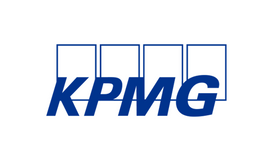The future looks bright for regulatory hosting platforms
By Barrie Davey and Darryl Noik, Robert Quinn Consulting
Published: 27 September 2019
The outlook for start-up managers, advisers and distributors in the UK remains volatile. New firms are spending as much time and resources on navigating the ever-changing regulatory and political landscape as they do on managing and marketing their own product and services. Increased investor focus on a firm’s governance and risk management processes add further layers of complexity. This further distracts the principals from what they really want to do – make investment decisions.
The emergence of regulatory hosting platforms and authorised firms that allow small or young businesses to operate under its regulatory license, provide managers with a turnkey solution that can be much more attractive in these uncertain times than committing and dedicating time and resources to obtaining and maintaining direct regulatory authorisation.
A long overdue and welcomed FCA review of principal firms in the investment management sector and accompanying “Dear CEO” letter (20 May 2019) however sends a clear message – the future of regulatory hosting platforms looks bright, but only if you’ve got your act together. The days of running a platform on a shoestring budget with a robust risk appetite and a loose understanding of regulations are over. The FCA’s “Dear CEO” letter serves as a benchmark, not only for regulatory hosting platforms, but for potential clients and investors to measure the service, independence and peace of mind they receive from their regulatory hosting providers.
As regulatory hosts and compliance experts, Robert Quinn Consulting have been hired by a number of regulatory hosting platforms – we see the benefits that a strong partnership between a regulatory host and a manager can bring to a firm’s operations and ability to attract institutional capital. Regulatory hosts with strong executive teams and dedicated experienced staff can identify and continually manage your regulatory risk - leaving you to focus on the markets.
Let’s review some of the key issues highlighted by the regulator:
Governance arrangements – first on the FCA’s list of concerns at principal firms was a lack of effective governance arrangements and deficient risk control frameworks. Citing SYSC 4.1., the FCA states that firms must have:
• Robust governance arrangements
• A clear, organisational structure with well defined, transparent and consistent lines of responsibility
• Effective processes to identify, manage and monitor the risks it is or might be exposed to
• Internal control mechanisms, including sound administrative and accounting procedures and effective control and safeguard arrangements for information processing systems
What this means is that a hosting platform must have documented policies and procedures to assess and monitor the risk profile of your strategy. Documenting a risk assessment of a potential manager by an independent regulatory host is the vital first step. Does the platform have individuals with experience in the space where the manager trades? Does the platform foresee any sharp edges e.g. ; strategies in illiquid or difficult to value instruments; U.S. clients that can trigger registration with the SEC or CFTC; does your regulatory host have the ability to make regulatory disclosures should your strategy include taking major shareholdings or short positions or even the ability to operate research payment accounts should this be your chosen route? Identifying these and other issues should result in the platform implementing bespoke monitoring plans and risk frameworks, providing managers’ and their investors comfort that the relevant risks are being managed.
Ongoing monitoring – the FCA expressed significant concern over inadequate and ineffective compliance monitoring. Platforms should have full-time dedicated senior compliance practitioners robustly reviewing all aspects of a manager’s business, as well as the ability to monitor daily, weekly, & less frequent trading strategies. These arrangements should also include the supervision of recorded lines and e-comms. All of which requires the platform to employ individuals that have significant experience on the buy side as well as systems that can adapt and monitor your universe. Having this in place means a manager will have a compliance monitoring programme tailored specifically to their business. Higher risk areas should be flagged and monitored with an appropriate frequency – as the FCA noted, monthly trading checks on a manager that trades daily are not acceptable.
Capital requirements and liquidity assessment – does the regulatory AIFM have the ability to monitor capital requirements and mechanisms to deploy more when needed, for example on the receipt of investor capital into the fund?
Another point of concern raised by the FCA in respect of AR platforms, is that platforms need sufficient financial resources to meet their obligations and the obligations of their ARs. How that arrangement is structured may be a commercial matter for the platform and its managers, but the obligation remains with the regulated firm. It is also clear that platforms need to be on top of their fixed overhead requirements, liquidity assessment and the limitations of professional indemnity insurance. In addition, the FCA found that revenue from regulated activities conducted by the AR was not being correctly reported. A knowledgeable regulatory host will ensure that appropriate mechanisms are in place from the outset of the engagement to mitigate against the risk of incorrect reporting.
Conflicts of interest – the FCA has focused on the identification and management of conflicts for the past few years and MiFID II highlighted that this trend will continue regardless of the potential disruption new regulations may cause. Successful platforms will recognise that their business model has inherent conflicts which need to be appropriately identified, managed and monitored.
Proactive management – in order to thrive, platforms will need a corporate governance structure that facilitates team decision-making and can withstand institutional level challenges. Consistent with the FCA’s comments on diversity, a senior management team or board of directors with a range of different financial services experience can be well placed to identify the risks and conflicts that each manager poses. Senior individuals are a product of their experiences and lessons learned earlier in their careers – focusing on and using that diversity of experience will provide a platform with the tools to succeed. It will have the ability to identify and manage a much broader set of risks. Having a single stakeholder make decisions that focus only on profit margin or sales can lead to an ineffective control framework.
All of the above point to regulatory hosts knowing the business better than the business does. A new client, a new market or a new fund can all trigger new regulatory issues and new headaches. Taking a less proactive approach may exacerbate that headache and put the trust between you and your clients at risk. An experienced, well resourced, independent regulatory host can prove to be the perfect remedy for these types of headaches.
With the right controls and expertise we believe that platforms will thrive and become the primary solution for new start-ups if they can pass the same due diligence institutional investors. Having senior compliance experts involved is vital.
Following the implementation of the Senior Managers & Certification Regime (SMCR) in December, platforms should take the opportunity to construct responsibilities for assessing and supervising a manager from the cradle to grave. While SMCR will not apply to the AR’s themselves, the platform needs to assign individuals to key responsibilities within the principal’s business. Given the risks, a disorganised platform or one with part-time compliance professionals will struggle to find quality senior managers to perform these roles.
Platforms should welcome the feedback from the FCA following this detailed review of the hosting industry. Understanding the regulator’s concerns and putting in place controls to meet the FCA’s requirements and expectations will ensure that this pragmatic and cost-effective turnkey solution continues to grow in a post-Brexit environment.









